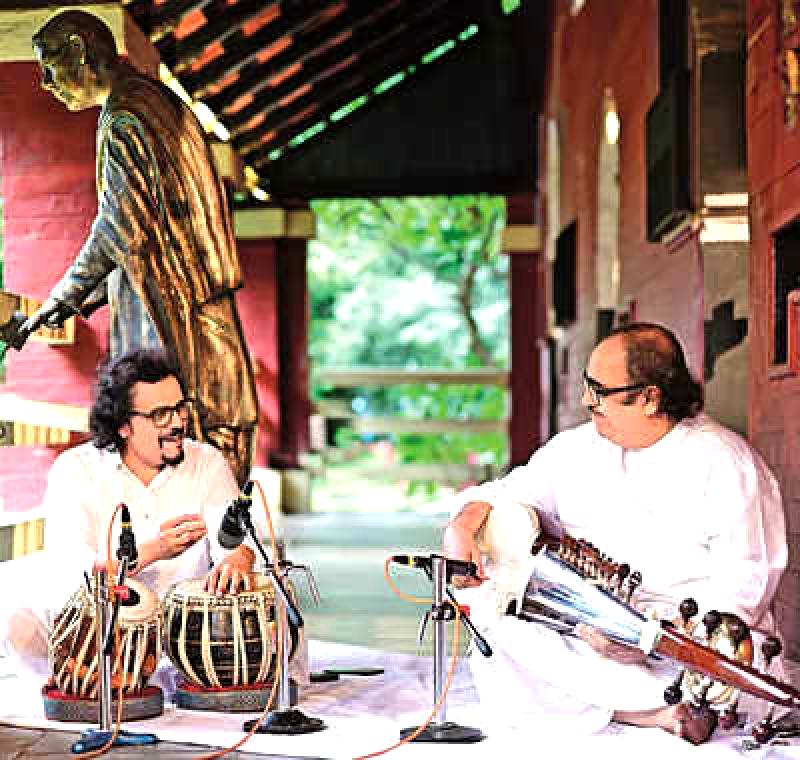
Musical maestros Pt Bickram Ghosh and Pt Tejendra Narayan Majumdar pay tribute to freedom fighters at Alipore Jail Museum through instrumental music. The video conceptualised by Mudar Patherya captures the essence of nationalistic songs like Vande Mataram and Sare Jahan Se Achha, highlighting Bengal's role in the freedom struggle. The musicians chose these songs for their universal appeal and emotional resonance. Their performance at the historic prison locations evokes patriotism and honors the legacy of those who fought for India's independence.The performers aim to evoke similar emotions with their music and attire, both in all white. Musician Bickram Ghosh shares that their music video is an attempt to connect with young audiences and reach an international crowd. The question is posed on how this musical experience resonates with a broader, national audience.
TNM highlights the brilliance of composers through their songs, using the example of the song "Utho go Bharata Lakshmi" which conveys a sense of marching, even without lyrics. Bickram Ghosh emphasizes that instrumental music allows for a different form of communication, where emotions are open to interpretation due to the absence of lyrics.
The focus is on the significance of the Cellular Jail's interiors, shedding light on the history of freedom fighters imprisoned there. Quotes from Bickram Ghosh and Tejendra Narayan Majumdar emphasize the emotional depth of patriotic songs presented through instrumental music. They stress the importance of acknowledging India's history while celebrating its diverse cultural heritage.
Mudar Patherya expresses a deep sense of reverence for the Alipore Jail Museum, suggesting that shoes should not be worn in this sacred space. The music performances take place in various locations within the jail, each with its own historical significance.The fields are filled with flowers, and open spaces resonate with the chant "Vande Mataram."











